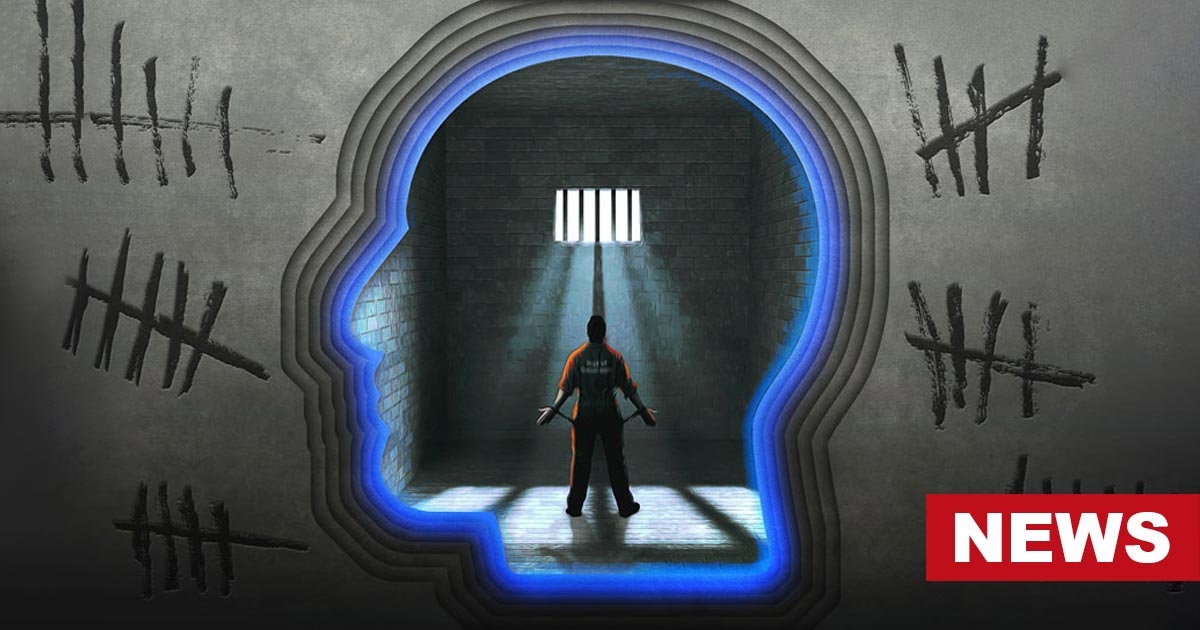- The US criminal justice system’s failure to address mental health in prisons has resulted in an overrepresentation of individuals with mental illness.
- This has led to inadequate access to care and a revolving door system that perpetuates the cycle of incarceration.
Mental Health Emergencies And Police Services
In the United States, mental health emergencies often become the responsibility of law enforcement agencies. Studies have shown that a significant portion of police calls for service involve individuals experiencing mental health or substance use crises.
These calls are complex and time-consuming, diverting officers’ attention from priority public safety issues and violent crime. Unfortunately, police officers are often ill-equipped to handle these situations effectively, as their training tends to focus more on firearms, tactical skills, and combat.
The mere presence of a police car or officer in uniform can escalate distress for individuals in crisis, making the situation more volatile for everyone involved. Tragically, encounters between police and individuals with untreated mental illness sometimes result in the use of lethal force.
Research indicates that 25 percent of fatal police shootings between 2015 and 2020 involved individuals with mental illness. Shockingly, individuals with untreated mental illness are 16 times more likely than the average citizen to be killed in police encounters.
Incidents like these have led to widespread protests, criminal charges, and civil suits, further highlighting the urgent need for a better approach to mental health crises.
Mental Health In Prisons
The overrepresentation of individuals with mental health disorders in the criminal justice system is a troubling reality. Approximately 64 percent of jail inmates, 54 percent of state prisoners, and 45 percent of federal prisoners have reported some form of mental health concern, including substance use disorders.
These statistics indicate that an estimated 960,000 out of the nearly 2 million incarcerated individuals are affected by mental health issues.
The prevalence of mental illness among inmates places a heavy burden on prison administrators and staff who are often ill-equipped to provide appropriate mental health services.
Consequently, mentally ill inmates are at a higher risk of harming themselves or others, leading to disciplinary procedures, solitary confinement, and prolonged incarceration. This exacerbates their psychiatric conditions and leads to a cycle of deterioration, recidivism, and a strain on prison resources.
Obstacles To Mental Health Care In The Incarcerated
One of the primary obstacles to mental health care in prisons is the lack of access to adequate resources and professionals. Nearly two-thirds of individuals with a history of mental illness do not receive any mental health treatment while incarcerated in state and federal prisons.
Shortages of psychiatrists, psychologists, and other mental health professionals contribute to this issue. Moreover, declining correctional budgets and increased inmate populations limit treatment to only the most severe cases or result in the outsourcing of medical care.
The dramatic rise in inmate populations, especially those with mental health and substance use disorders, coupled with staffing issues and fiscal constraints, has created a crisis in correctional facilities nationwide.
This lack of safety and limited resources make it difficult to recruit and retain the professionals needed to address the physical, mental, and substance abuse treatment needs of inmates. Tragically, many inmates die while awaiting trial, often by suicide or drug overdose, due to the inadequate provision of mental health services.
How The Criminal Justice System Fails To Address Mental Health In Prisons
The criminal justice system’s approach to mental health in prisons has proven to be ineffective and detrimental. The system’s focus on punishment and containment rather than rehabilitation and treatment exacerbates the challenges faced by inmates with mental health disorders.
Short-term periods of incarceration can lead to long-term mental health issues, making it harder for individuals to reintegrate into society upon release. Consequently, many former inmates with mental illness end up homeless, unemployed, and more likely to reoffend, perpetuating a cycle of incarceration.
Additionally, the fragmented approach to transitioning individuals with mental illness from prisons to the community often results in their deterioration and eventual return to the criminal justice system.
This revolving door system not only strains prison resources but also increases danger and burnout among staff. Moreover, the number of mentally ill inmates who have died while in custody is deeply troubling, reflecting the system’s failure to provide adequate mental health care and support.
Advocating For Mental Health In Prisons And Jails
Addressing the mental health crisis in prisons and jails requires a comprehensive and compassionate approach. Advocates and experts have called for a shift towards prevention, police-led deflection, pretrial release, prosecutorial diversion, programming while incarcerated, and parole release planning.
These strategies aim to address the root causes of mental health issues, divert individuals away from the criminal justice system when appropriate, and provide comprehensive treatment and support to those who are incarcerated.
Investing in mental health resources within the criminal justice system, including increased staffing levels, training for correctional staff, and partnerships with mental health professionals, is crucial.
Furthermore, diverting individuals with mental health issues to community-based treatment programs instead of incarceration can lead to better outcomes and reduced recidivism rates.
Advocacy efforts are essential in pushing for policy changes that prioritize mental health care within prisons and jails. This National Mental Health Awareness Month, by raising awareness, advocating for appropriate funding, and promoting evidence-based practices, advocates can work towards a system that supports the well-being and successful reintegration of individuals with mental illness.
Know More About –
Related Articles –
- The Narcissist In Court: What You Need To Know
- Understanding Narcopathy: 20 Signs of a Narcopath (Narcissist-Sociopath Mix)
- Life Lessons From The Joker: What We Can Learn From The Clown Prince of Crime


